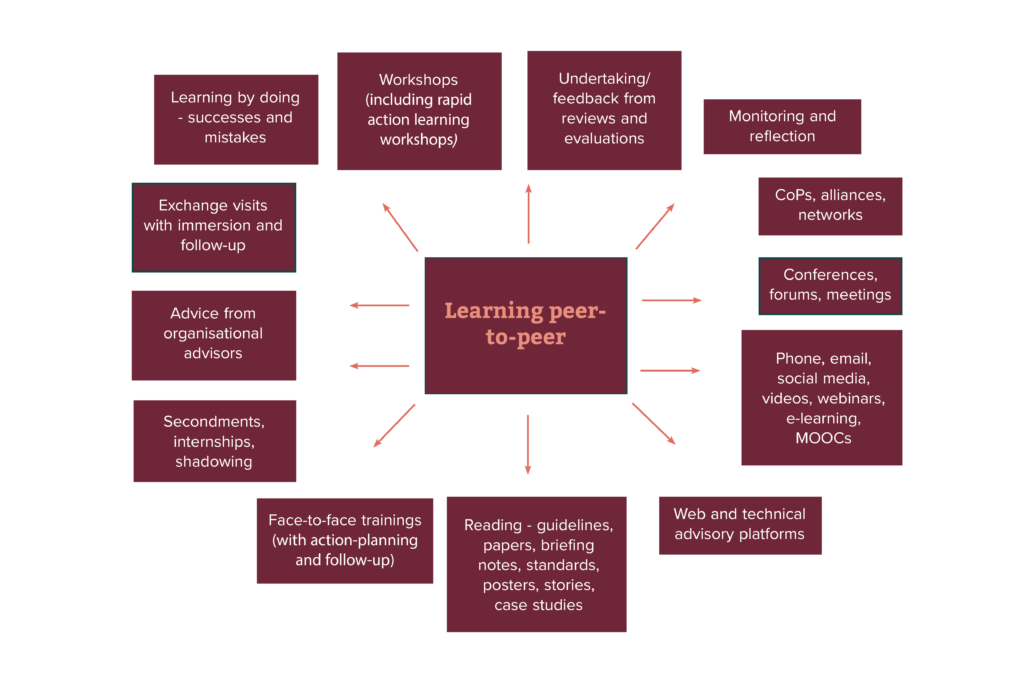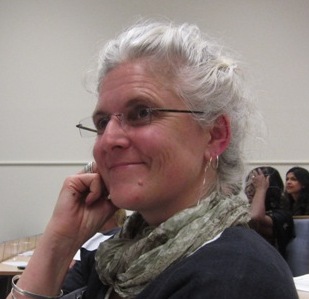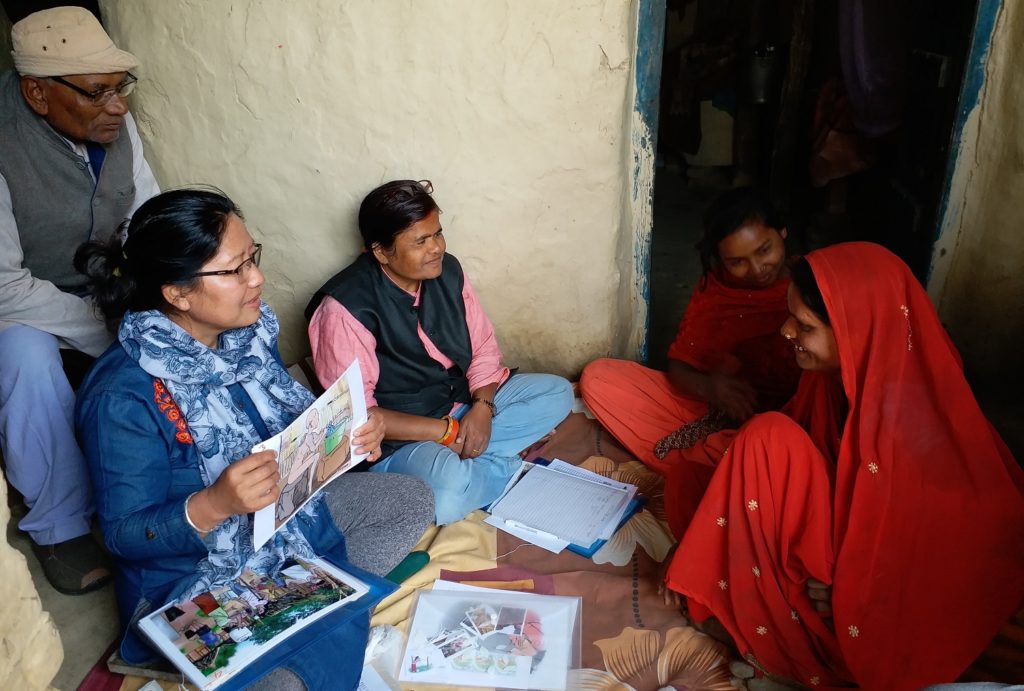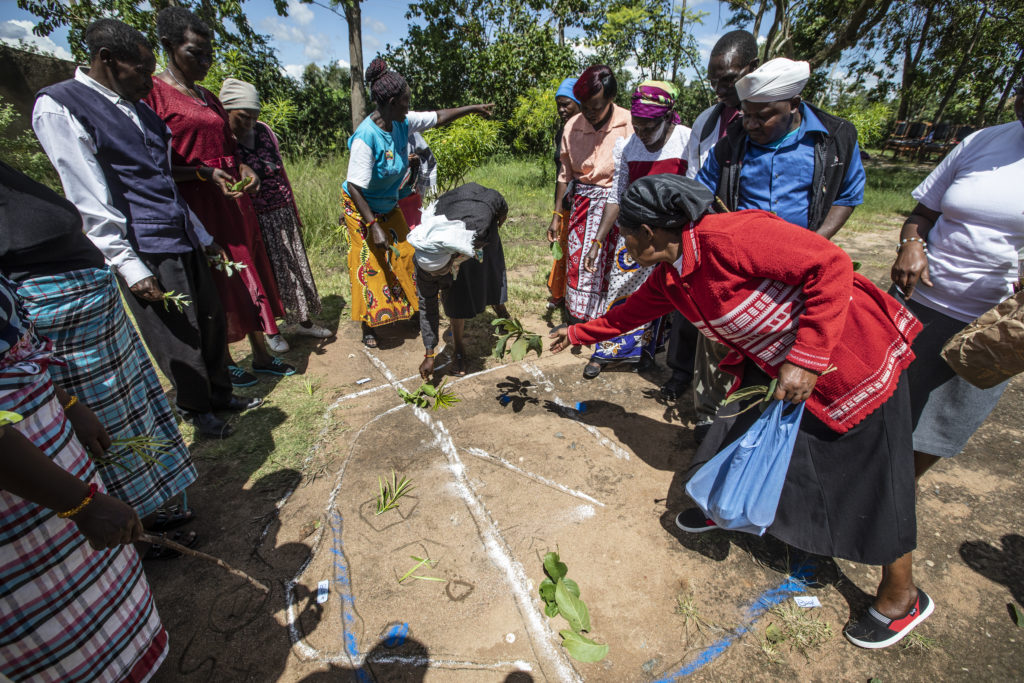This blog is the third in a series of five on the SLH- supported rapid topic exploration on learning in the WASH sector.
- ‘Learning about learning’ in the sanitation and hygiene sector
- Innovative approaches for inclusive community learning
- Blogs 4 and 5 will focus on the barriers that prevent us learning and translating it into action at scale and strengthening action and learning at scale.
There is also an associated learning brief and learning paper with more detail.
Methods and tools currently used for learning peer-to-peer
A wide range of methods are used for learning peer-to-peer within the sector, as explained in the image below.

More peer-to-peer learning opportunities tend to happen for people working at national and international levels, and less for sub-national and field-based professionals. This blog therefore focuses on examples of peer-to-peer learning that may be of particular use to sub-national and field-based professionals.
Breaking down language barriers
Language can be a significant barrier to learning and sharing learning. The majority of international learning is produced in English. Sometimes translations are made into French, Portuguese or Arabic and only occasionally in other languages. This poses significant challenges for practitioners who are not confident in English.
WaterAid has made significant efforts in the past few years to improve in the way it enables access for and facilitates the engagement of colleagues who speak languages other than English. Examples:
- They try to translate all key documents into 4 core languages.
- They have started translating drafts of key documents into French – to allow French speakers to also review the drafts as well as read the final reports.
- They have recognised that there is a need to significant budget for translation work and that it takes time and needs checking; but they now have a pool of experienced translators.
- In the West Africa regional meetings, they use two screens in parallel with instantaneous translation with headphones.
- They tend to run their webinars in English, but have people able to translate and they say you can ask questions in your own language.
Secondments/job immersions, visits and learning by doing and making mistakes on the job
Secondments or ‘job immersions’ are where a person immerses themselves in someone else’s job for a period of time, to experience the day-to-day realities and challenges. These job immersions in other programmes, and ‘learning by doing’ and by making mistakes, were both noted as being particularly valuable for learning, although job immersions / shadowing and visits can potentially be costly if they involve travel and subsistence for large numbers of people.
On-going coaching and mentoring
On-going coaching and mentoring were mentioned as being of value for building capacity and confidence and influencing the learning to be turned into action. Having dedicated staff who have a role in supporting learning, either within country or regional teams, is also valued and noted to be particularly useful. Examples include: a) Technical advisors often have this particular remit and have the role to link people who need to know, with those who are likely to know; and b) Programme learning units which have also been established in some organisations and programmes.
The Cambodian Rural Sanitation and Hygiene Programme (CRSHIP) programme, which is managed by Plan International and funded through the Global Sanitation Fund, had a dedicated Learning and Documentation Team, which was led by WaterAid. Their job was to support the on-going learning and development of staff across the programme, including the learning processes and events, the research, the documentation and the dissemination (Real-Time Learning and Documentation in CRSHIP and Enhancing Sanitation Programming Through Real-time Learning).
WASH Clinics
This positive example from Nigeria, provides an example of learning events at ward and Local Government Authority (LGA) levels, which offers opportunity for regular mutual learning and sharing. This can offer the opportunity, for good practices to be translated directly into practice by other implementors across new areas.
“In Nigeria, WASH Clinics are held to share innovations among implementers at the ward and LGA level. Government organises the review meetings, which are project based”
‘Knowledge Management: West and Central Africa Region’
Rapid Action Learning workshops
Face-to-face training and workshops were mentioned by multiple respondents as still being very valuable, particularly for field-based staff. They give the opportunity to be away from your desk and to concentrate on learning as well as offering the opportunity to reflect and learn from peers as well as the trainers.
RAL workshops have been supported by the Government of India for the Swachh Bharat Mission, together with the IDS and the WSSCC. They are designed and facilitated to be participatory, informal, enjoyable and useful and for sharing and learning horizontally peer-to-peer and between levels. Most interactions are sideways not top-down. Senior staff are in a listening not lecturing mode. They are focused on what is working, innovations, and successes and also challenges and solutions. (A Rapid Action Learning guidance note is available here.)
A number of participatory techniques are available for gathering knowledge, one example being the hunter-gatherer technique in which ‘hunter-gatherers’ self-select a topic they are most interested in championing and work together in groups to produce a short report (2-6 pages) by the end of the workshop. Each day, dedicated time is given for people to collect relevant information from one another.
“Outputs are action-orientated, with groups asked to reflect on what should be done moving forward and recommendations for policy and practice.”
‘Knowledge Management: West and Central Africa Region’
Practitioner communities of practice
Communities of practice come in different forms. The Core Facilitation Team in Cox’s Bazar in Bangladesh was set up to respond to a particular area of weakness in the field response.
A ‘Core Facilitation Team’ (CFT) was established in Cox’s Bazar, – This was to bring together hygiene promotion staff from across agencies to improve the quality and coherence of the hygiene promotion efforts. The CFT is seen to have been effective as the learning is facilitated in Bangla, is flexible based on on-going learning needs and has also been facilitated by a dynamic individual.
Documenting and sharing stories
Documenting and sharing stories and case studies on what has gone well and challenges faced, have also been useful for learning and influencing change as well as raising particular issues and bringing issues to life. In relation to this, a recommendation from the briefing note on knowledge management by Akpa and Allade, is to “Co-create stories with the field workers and give them credit”, something that is not always done. This is an example of a competition to encourage people to share best practices.
“In Burkina Faso, best practices are collated, published and shared in a meeting with the media which is supported by UNICEF. Also, IRC organises a competition on innovation and new approaches where a winner emerges and an award is given as an incentive.”
‘Knowledge Management: West and Central Africa Region’
Online advisory platforms
In 2020, a Hygiene Hub was set up by the London School of Hygiene and Tropical Medicine to offer advice from experts in hygiene related to the COVID-19 response in low- and middle-income countries. People working in the field can send in questions and also share information on what they are doing in their areas of work.
WhatsApp groups
There has been an increase in the use of social media for sharing and learning, across programmes and sectors and on specific subjects, such as menstrual hygiene.
In Nigeria, a WhatsApp group has proven very useful for sharing learning across the sector. People across the sector use it, although some still do not. The platform doesn’t require any finance for its running as it depends on individual internet access. It was noted as being useful as you can throw up a topic and people contribute; such as when you are facing challenges and how to find solutions. For example, the importance of tradition and culture in relation to the effectiveness of triggering was discussed.
However, a recent study in Indonesia reported that learnings through WhatsApp groups can be instantaneous, but difficult to find at later a date (source: key informant interview). i.e. Whatsapp is good for getting a quick response to a particular issue, but does not provide a longer-term resource as a reference tool.
MOOCs
Massive Open On-line Courses (MOOCs) offer significant opportunities for learning in the sector including for people working at sub-national level, if they have the particular language skills to enable them to participate.
Evidence of the interest and demand for such courses can be seen from the EAWAG supported MOOC series “Sanitation, Water and Solid Waste for Development”. This was launched on the learning platform Coursera, where it has reached 95,000 enrolled students so far. More than 50% of learners are from low- and middle- income countries. The series features courses on municipal solid waste management; household water treatment and safe storage; faecal sludge management; and planning and design of sanitation systems and technologies.
Face to face training courses
Traditional training courses are still needed and are of value to professionals within the sector, particularly to increase the quality of work. It has been noted that students have increased demand for more multi-media, interactive and participatory group teaching methods; but lecturers and trainers still note the need for some traditional teaching methods, providing information for the trainees, particularly for technical subjects. Integrating a mix of lecture type information sharing, practical exercises and group work seems to be an appropriate mix for useful and effective learning.
Sanitation conferences for sub-national actors
National sanitation conferences to bring together government professionals from across a whole country, are seen as useful opportunities for peer-to-peer learning and have the potential to have an impact at scale, although are likely to be expensive to support. It was also suggested that holding these at regional or district level would also be useful.
National sanitation conference for District Health Officers – In Tanzania a national sanitation conference brought district health officers from all over the country together as well as some external actors. It was felt to be a good platform for people to learn different things and create awareness from which detailed learning can follow. People shared challenges and reacted with discussions and increased understanding at this professional level (source: key informant interview).









